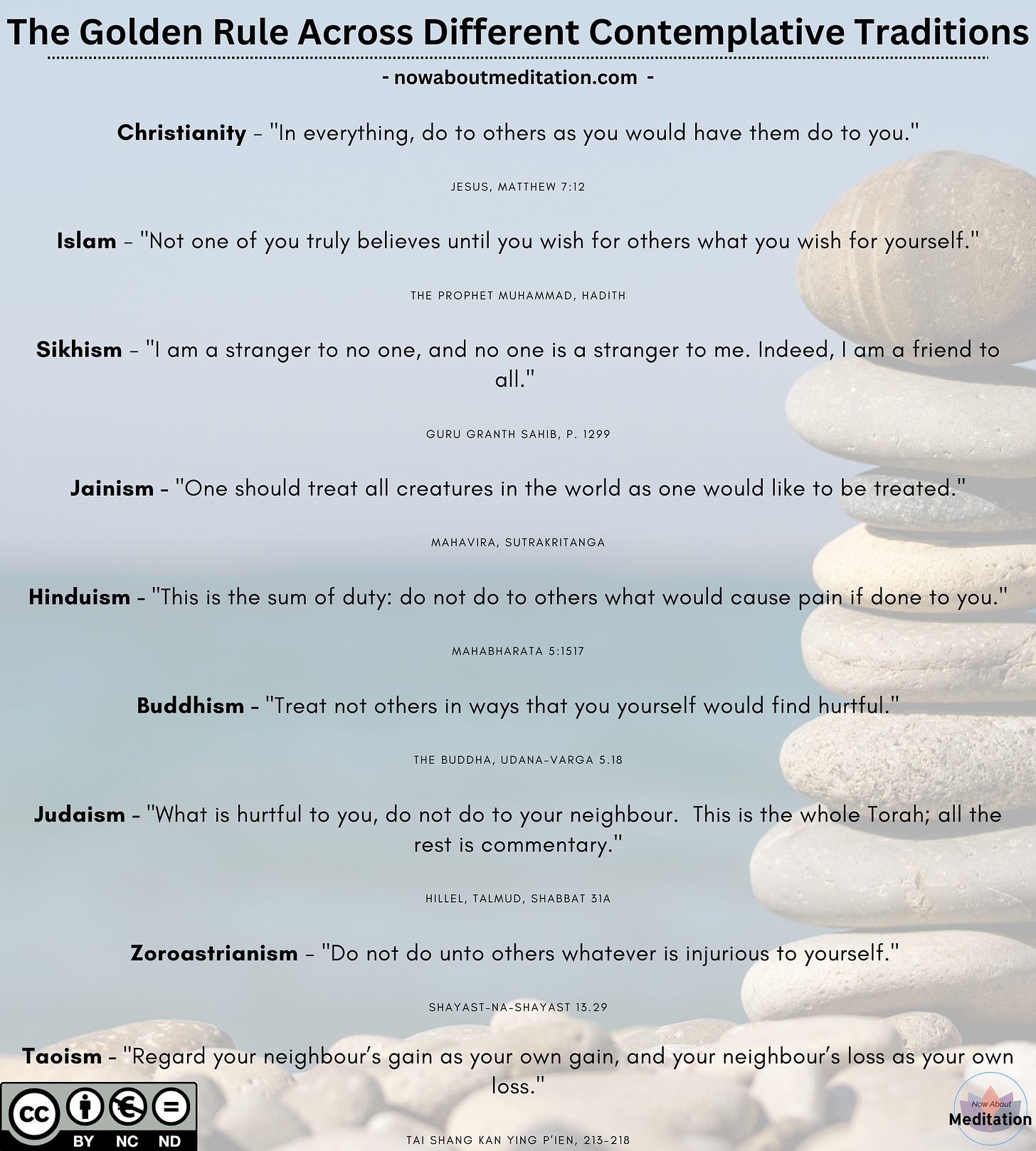Is Compassion the Key to Addressing Global Challenges
Is rooting ourselves in compassion, our common humanity, as reflected in the “Golden Rule” common to all major contemplative traditions the key to addressing challenges humanity is facing.
As modes of transport and communication advance, they inherently make the world a smaller place. Many times, we hear news of “the American dream”, “the prosperous EU”, “a new life in Canada”, or “going down under; wonderful Australia”.
We all want a better life, and such ideas lead people who are living in countries with a stagnant future because of war, climate change, oppressive leadership or a bleak economic situation to consider migrating to other countries, seen as offering a better life.
This has led to the current prominent issues of migration as we see in Europe with people braving crossing the Mediterranean in boats which barely keep afloat, people from Central America making the arduous journey across Mexico seeking a better life in the USA, with others crossing the sea to Australia also in search of a better life. These, amongst others.
On reflection, we can see that there are factions in our societies interested in the grasping of power who have used the “issue” of immigration to instil fear and anger in local populations solely to promote their political agenda and power interests and not truly the interests of the people as they advertise.
This ends up fuelling and re-ignited potential extremist nationalist movements. We have definitely seen this in the last couple of years through an increase in the rise of various far-right political groups both in America and Europe.
If we look to history and learn from it, such ideologies have led to 2 world wars and could be said also triggered the situation in Ukraine. I ask, is this what we want?
At times it feels as if we are losing our humanity. But there is hope, and we see this in situations where individuals around the world have united to proactively show their concern about global issues like the equitable distribution of wealth, climate change or the rise of violence (as we see this in people uniting in response to school shootings in the USA). I am not referring to the current trend of being woke, “awake”, which in my opinion, has totally misunderstood what contemplative traditions meant by “awakening the spirit” or “waking up”.
I am referring to examples similar to the incident that really personally for me reflected this, like what happened in Christchurch, New Zealand, where a whole country in unisons responded with compassion towards each other in response to an act that was intended to instil fear, division, hate and anger. This in an act to address the situation by joining together with a common compassionate understanding and making the necessary changes to minimise the chances of a similar situation repeating itself.
This reminds me of a situation a couple of years ago when a young Italian boy who, when faced with far-right activist protesting in Rome trying to instil and fuel separation, fear and anger, did not respond in kind but with compassion, as follows:
“What you are doing here in Torre Maura is exploiting the anger of the people. You turn this anger into votes, for your interests.”
“This thing of always going against minorities is not OK with me.”
“When you then talk about European funds to invest in the neighbourhood, I think those funds must be spent on everyone.”
“No one should be left behind. Neither the Italians, nor the Roma, nor the Africans should be abandoned.”
Such a reaction left the activist dumbfounded, not knowing how to react to what the boy told him and the situation (see the video below).
And ultimately, this is our strength, not separation or segregation but what all major contemplative traditions call the “Golden Rule” (see image below), sometimes called within the academic arena the universal ethic of reciprocity too, “do onto others as you would like others to do unto you,” that of acting with compassion the root to our common humanity might be key in addressing both local and global challenges.
Bibliography
Armstrong, K. (2011). Twelve steps to a compassionate life [epub]. New York, go to sleep: Three Rivers Press.
Grahm-McLay, C. (2023, March 14). Four years after Christchurch massacre, families want to teach world about love. Retrieved from The Guardian: https://www.theguardian.com/world/2023/mar/15/four-years-after-christchurch-massacre-families-want-to-teach-world-about-love
Neusher, J., & Chilton, B. (Eds.). (2009). Golden rule: The ethics of reciprocity in world religions. London: Bloomsbury Publishing PLC.
Tondo, L. (2019, April 5). Footage of italian boy who stood up to fascists goes viral. Retrieved from The Guardian: https://www.theguardian.com/world/2019/apr/05/boy-15-simone-italy-video-hailed-as-hero-rome-roma?CMP=share_btn_tw



